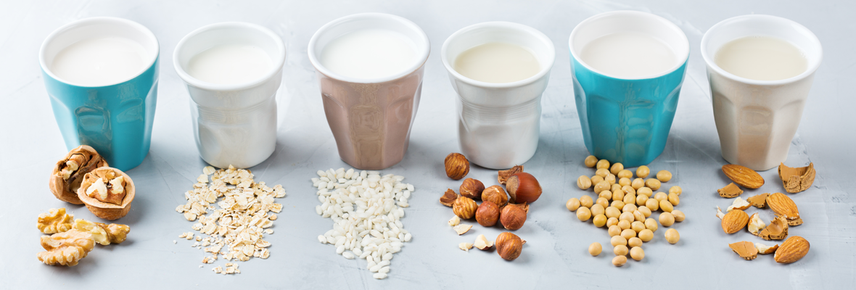
The low down on calcium and why most women need more
It’s well known that calcium is a must for strong bones and teeth, but that’s just the start.
Calcium helps your muscles contract and relax, helps your nerves transmit messages, and even helps your blood to clot.
It’s a super little mineral but most of us just aren’t getting enough. Almost three out of four women don’t get enough calcium and when we need calcium the most - during our teen years and after menopause—90 per cent of women fall short.
Your body stores most of its calcium in your bones and teeth and, if you’re not getting enough calcium from your diet, it will start to tap into these stores. On average you need 1000mg of calcium a day. Consuming good sources of calcium daily helps to improve your bone mineral density and reduce the risk of osteoporosis in people over 65.
Dairy foods, like milk and yoghurt, are often the first to spring to mind when you think calcium, but they are not the only sources. You can also get a calcium boost from some nuts, tofu, chickpeas, leafy greens like kale, broccoli and bok-choy, and some fish and fortified soy or almond milks.
To make sure your body is getting enough calcium, try these four dietitian-approved tips:
Calcium helps your muscles contract and relax, helps your nerves transmit messages, and even helps your blood to clot.
It’s a super little mineral but most of us just aren’t getting enough. Almost three out of four women don’t get enough calcium and when we need calcium the most - during our teen years and after menopause—90 per cent of women fall short.
Your body stores most of its calcium in your bones and teeth and, if you’re not getting enough calcium from your diet, it will start to tap into these stores. On average you need 1000mg of calcium a day. Consuming good sources of calcium daily helps to improve your bone mineral density and reduce the risk of osteoporosis in people over 65.
Dairy foods, like milk and yoghurt, are often the first to spring to mind when you think calcium, but they are not the only sources. You can also get a calcium boost from some nuts, tofu, chickpeas, leafy greens like kale, broccoli and bok-choy, and some fish and fortified soy or almond milks.
To make sure your body is getting enough calcium, try these four dietitian-approved tips:
More rays
Vitamin D helps your body absorb more calcium—they’re best friends! Vitamin D comes from the sun, so head outdoors especially early in the morning or late in the day to get some sun on your skin while avoiding sunburn. You can also get vitamin D from mushrooms, fortified soy and almond milks, and a small amount in eggs.No dairy, no worries
If you are cutting out or cutting back on dairy, it’s important to make sure your meals include plenty of plant sources of calcium. There are so many tasty options to choose from that it’s not a hard task, just something to be mindful of. Starting your day with So Good Soy or Almond Milk on your cereal will give you at least a third of your daily calcium needs.Stop shaking
Salt and high salt foods can increase the loss of calcium from your bones. So, pass on the shaker and flavour up your meals with herbs and spices.Cut coffee
Cringe...but caffeine interferes with your body’s ability to absorb and retain calcium, especially when your calcium intake is low. To get a kick start to the day without a caffeine hit, why not switch your soy latte to a soy+fruit smoothie.
The latest nutrition advice, plus health and wellness tips delivered to your inbox monthly

